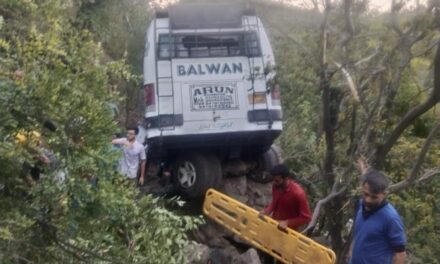![]()
KNZ NEWS DESK
Srinagar, Feb 23 : Kashmir Valley and Banihal received rainfall overnight even as minimum temperatures increased across the Valley, weatherman said on Tuesday.
A meteorological department official told GNS that Srinagar recorded a low of 6.6°C against 5.8°C on the previous night.
The temperature was around six degrees Celsius above the normal for this time of the year in Srinagar where 2.2mm of rainfall was recorded in the last 24 hours till 0830 hours, the official said.
Qazigund, the gateway town of J&K, recorded a low of 4.0°C against 3.0°C on the previous night and had a rainfall of 3.4mm during the time, the official said.
The mercury settled at 3.2°C at Pahalgam against minus 1.2°C on the earlier night while the world-famous tourist resort recorded 3.2mm of rainfall.
Kokernag, also in south Kashmir, recorded a low of 3.4°C against 4.0°C on the previous night and had a rainfall of 2.2mm, he said.
The minimum temperature settled at 6.2°C in Kupwara against 4.0°C on the previous night even as the northern Kashmir district recorded rainfall of 4.6mm, he said.
Gulmarg, the world-famous skiing resort, recorded a low of 0.0°C against minus 0.6°C on the earlier night and recorded fresh rain/snow of 4.8mm, the official said.
In Jammu division, Banihal received rainfall of 1.2mm and lowest minimum temperature—6.1°C— among the observatory stations while winter capital, Jammu, recorded a low of 15.2°C, the official said.
The MeT office has forecast erratic weather throughout the week with possibility of heavy rain/snowfall at some places in Jammu and Kashmir on February 25-26. According to the MeT official the weather system may cause disruptions of flights and slippery road conditions Banihal-Ramban, Zojila, Mugal road etc during the two days.
For February 26 and 27, the weatherman has issued a “yellow warning” for “isolated heavy rains/snow/thundershowers” in Kashmir as well as Jammu divisions.
There are four types colour codes signifying the level of caution: green which means no action, yellow—situation to be watched), amber –government agencies need to be prepared for severe weather and red –action needed by the agencies. (GNS)

























